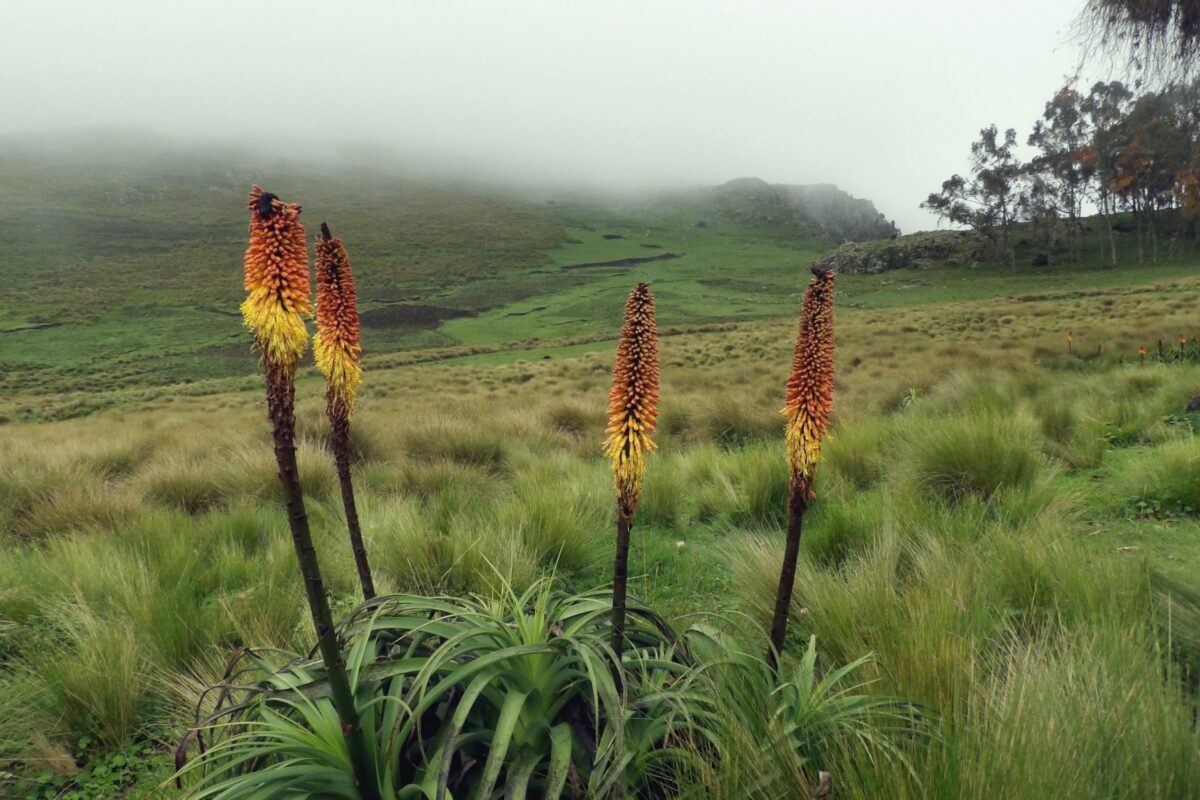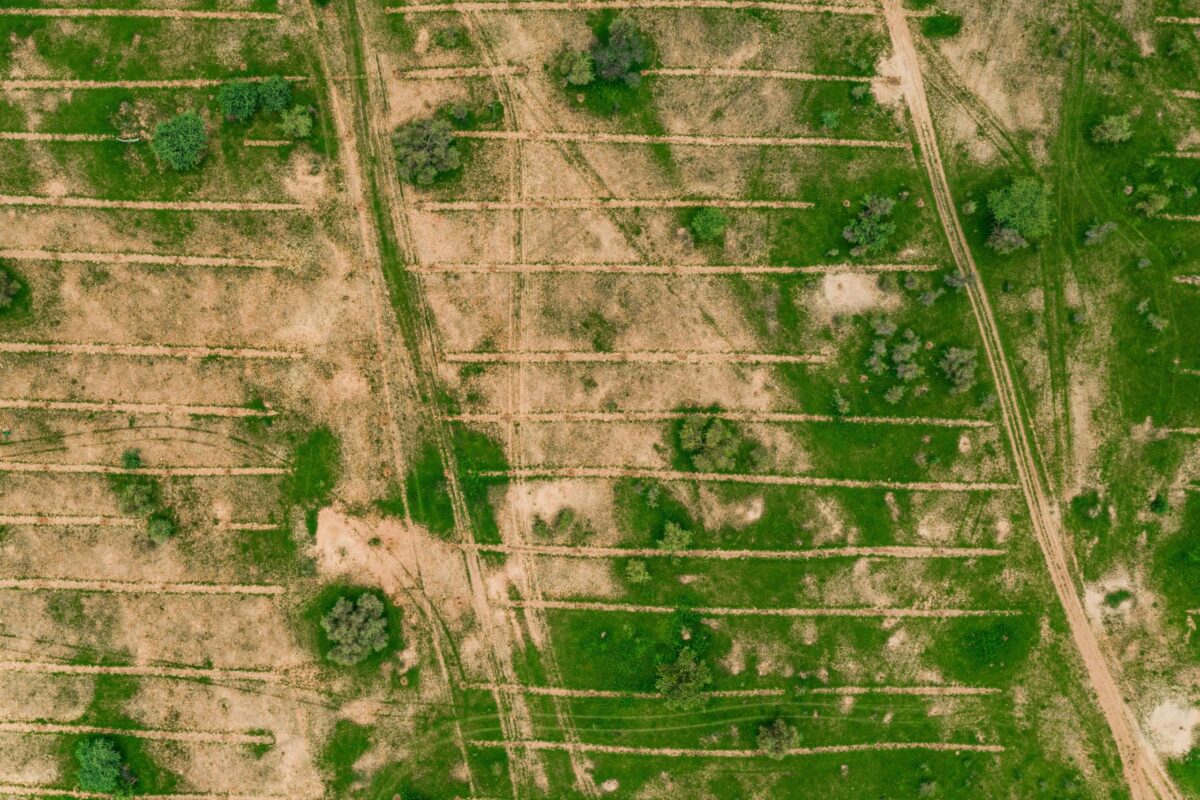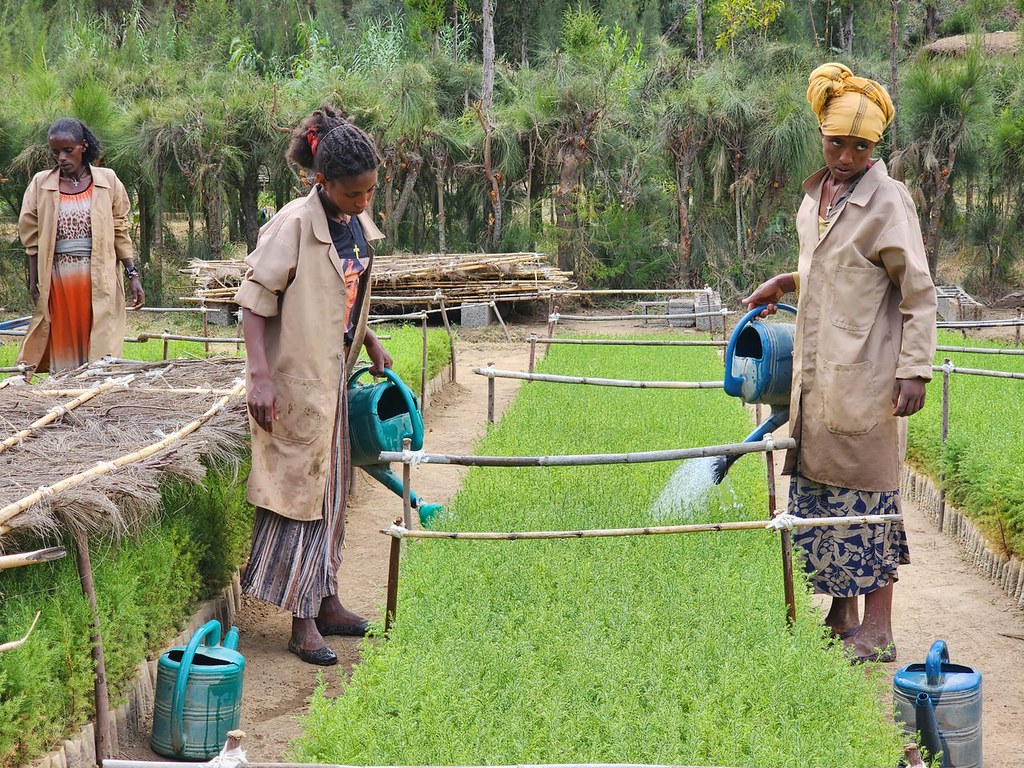It is therefore that efforts to conserve and restore forests should always take into account the forest community, for example by providing training and creating access to alternative income sources, as one of the most important ways to harness forest ecosystems services improvement through forest restoration programs while achieving communities’ economic needs.
In Tigray, Apiculture (beekeeping) is one of the most important income earning activities for the forest communities. WeForest is working with local communities on restoring the degraded forests of Desa’a together with the local communities, by letting them benefit from livelihood improvement interventions.
Melake-Genet W.G., 34, is one of the beneficiaries. He is a the head of his family, with five children, of which three of them are already going to school. As he does not own his own land, but hires land to feed his family, according to him “life is becoming more challenging to me and my family because farming as we used to do has become less rewarding, especially when the land is hired in, due to frequent drought and unpredictable rainfall. For instance last year, which was supposed to be a good year, my yields only managed to feed my family for 7-8 months.” However, since he got two bee colonies and modern hives from WeForest he has now managed to double the numbers of bee colony within six months.
“I am spending my time on managing these bee colonies and hope to get more income from honey production. I am planning on selling half of it, and keeping the other half for household consumption. My short-term plan is to add more colonies and increase my stock. In the long run, I plan to expand my beekeeping business by joining a group of beekeepers, produce on a large scale and sell the product in cities where honey is sold for premium prices.” He is aware that drought and a shortage of bee forage could be a problem, but to him the solution to that is clear: “I will plant some plants that can serve as feed for the bees and if I need technical help, I will contact experts and my peers who have more experience in beekeeping.”














